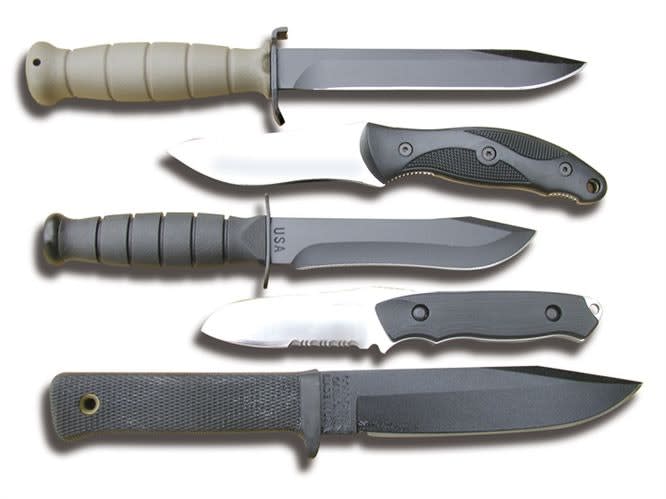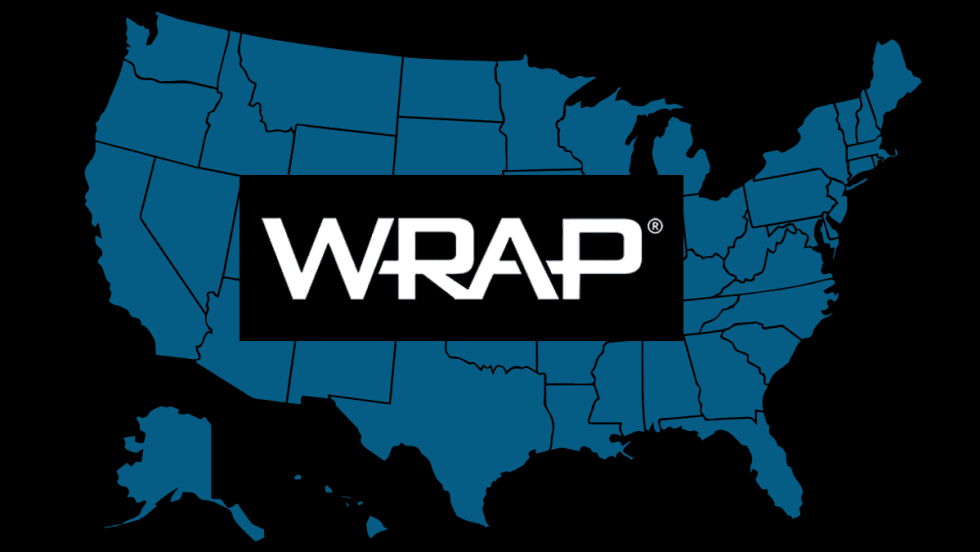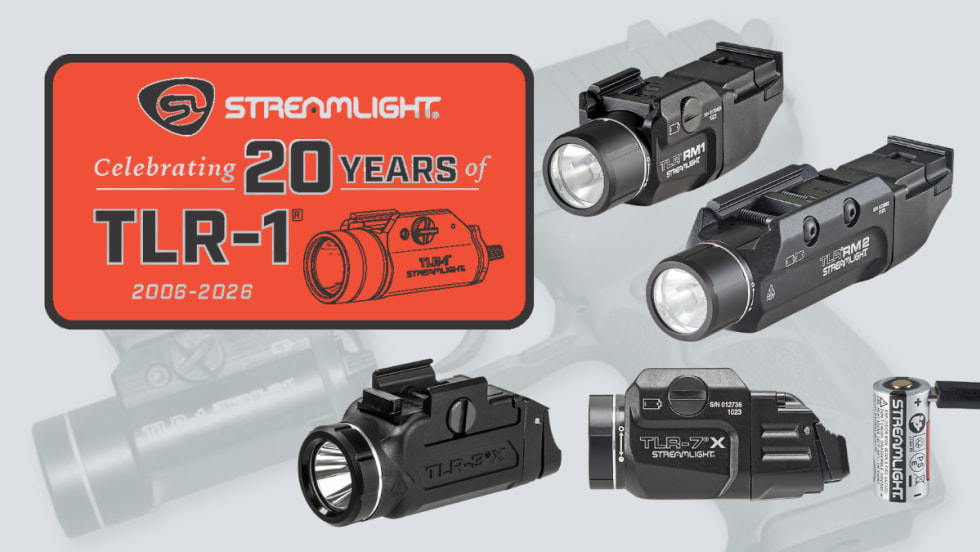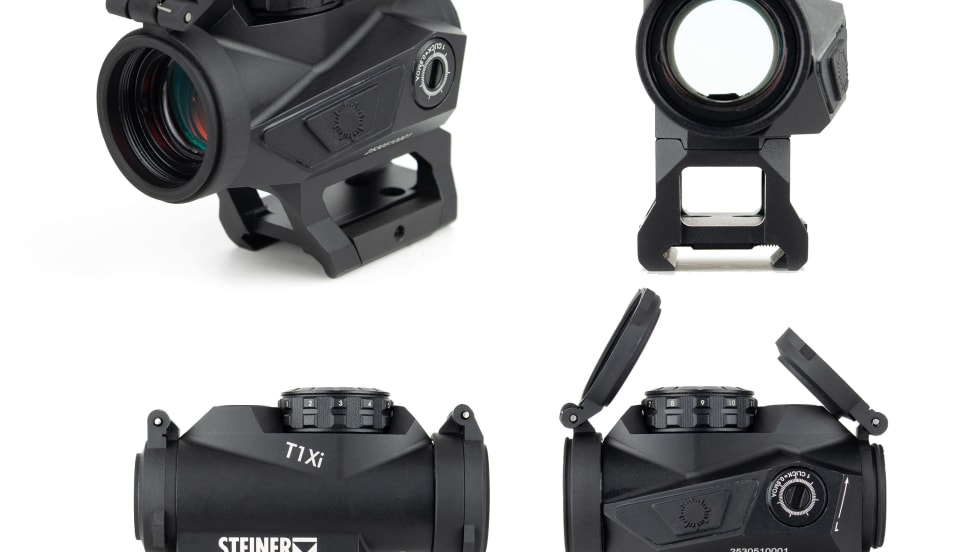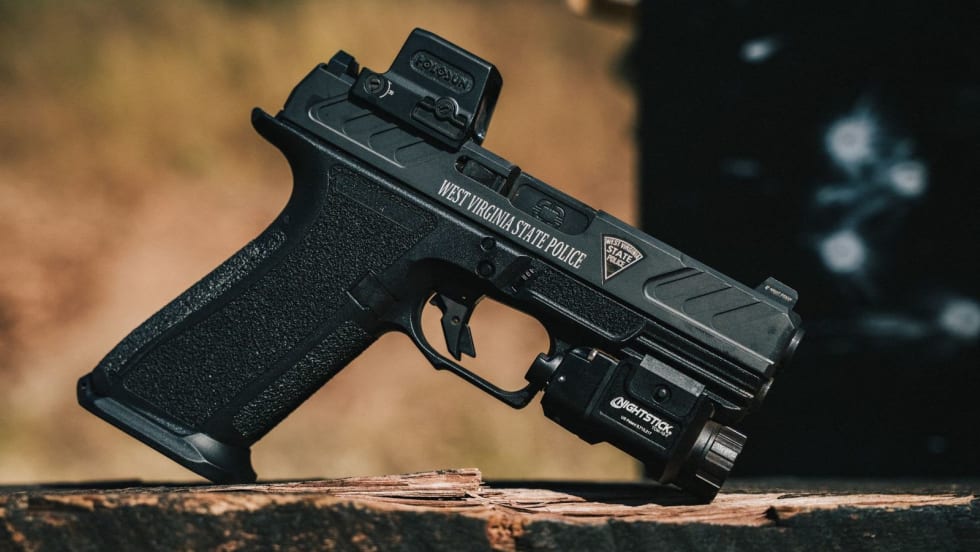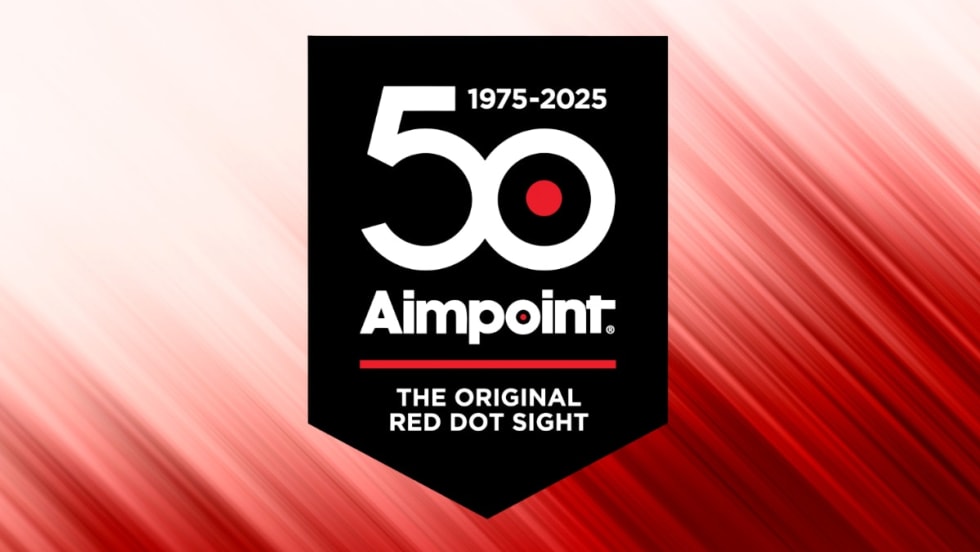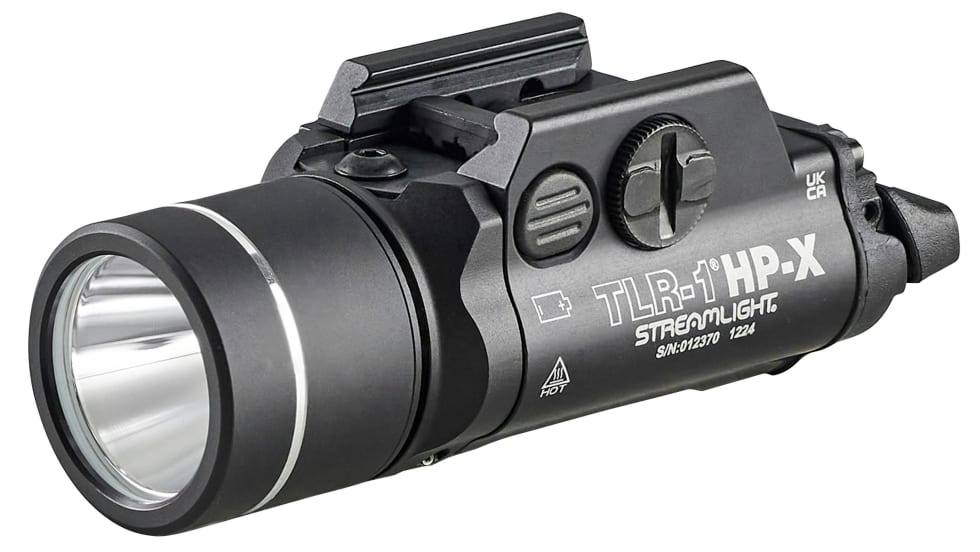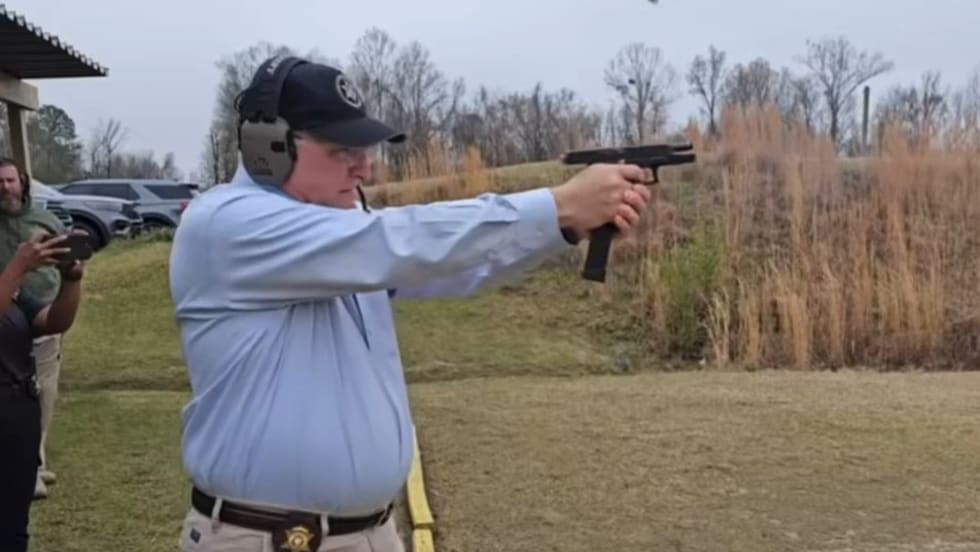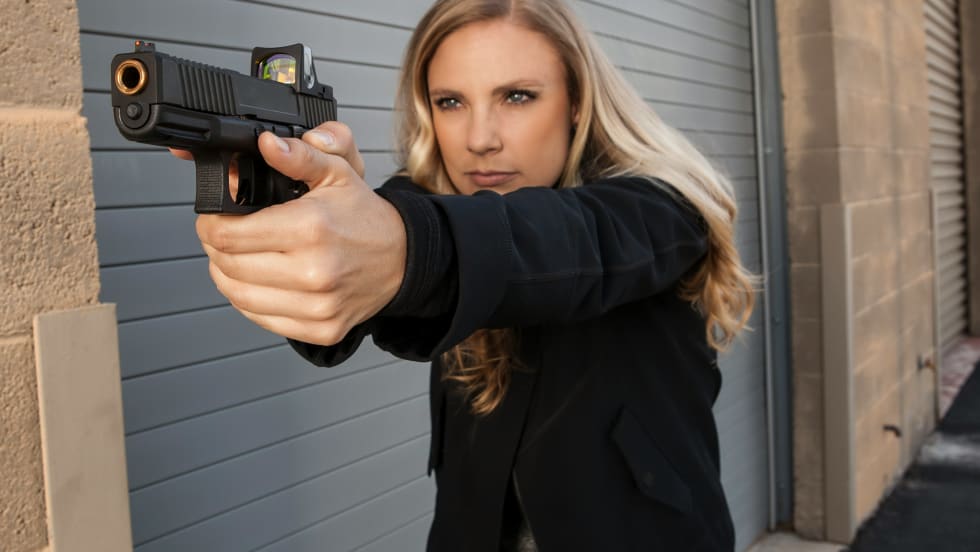Today's pocket knives have been transformed from the large Buck Lockblade and the Schrade Old Timer to the ultra-modern streamlined clip-it folders you see in every duty gear catalog and supply house.
When it comes to duty gear, many of the items you carry are mandatory and chosen for you by your agency or department. It's likely that you have little say in what sidearm you strap on each work day, what ammunition you load in your magazines, what body armor you wear under your uniform, and what radio you clip to your shoulder. But on many departments, certain equipment items are left up to you. Examples of such items include gloves, sunglasses, and a clip-it/pocket knife.
The clip-it folding knife has become a uniform staple for many officers, but don't confuse it with your daddy's pocket knife. Today's pocket knives have been transformed from the large Buck Lockblade and the Schrade Old Timer to the ultra-modern streamlined clip-it folders you see in every duty gear catalog and supply house. This new breed of easy one-hand-opening knives has revolutionized the way you use edged tools.
Duty knives are primarily carried as tools, not weapons, and they are designed to work hard. The strong, ultra-sharp, hollow-ground, single-edged blades of duty knives are extremely versatile. They can be used for such mundane tasks as opening boxes, can make short work of seat belts and baby carrier straps when rescuing accident victims, and in extreme cases, they can be a weapon of last resort. But always remember that using a duty knife as a weapon will bring serious ramifications, especially if it is not department issue.
Truth be known, although many cops think of their knives as "tactical knives," it's much more likely the blades will be used for such high-risk operations as peeling an apple, opening a letter, or dividing a ham sandwich than as edged weapons.
Wide Selection
Contemporary knife makers like Al Mar, Benchmade, Boker, Cold Steel, Columbia River Knife and Tool, Emerson, Masters of Defense, SOG, and Spyderco offer a variety of different models with numerous features. You can get folding and fixed-blade knives with serrations, drop points, tanto and spear blades, all in a wide range of sizes.
And the grips are as high-tech as the blades. Grip materials include fiberglass, laminates, nylon, and Kraton, all offering solid slip-resistant handling. Grip features include finger grooves and a wide variety of colors.
Buying a Blade
The type of knife you choose to carry is a matter of personal choice and personal budget. Duty-quality folding knives range in price from about $50 to more than $200.
In the realm of budget folders, Spyderco was once one of the only games in town for inexpensive professional-quality folders and even today the company offers one of the largest selections of clip-it knives of any knife maker. Other professional brands that offer budget lines include Columbia River Knife and Tool and Cold Steel.
Higher-end duty knives are often found in the pockets of elite military and police units. Al Mar, Benchmade, Boker, Emerson, and Masters of Defense are some of the more popular brands of elite folding knives. These knives have many features that spec ops units need. Elite folding knives are constructed of tougher materials than their less expensive counterparts and feature high-quality blade steel, tougher liners, stronger handles, and non-reflective finishes. Some also offer special features for police and rescue units. The Emerson Search and Rescue Knife (SARK) line, for example, was designed for high-stress emergency extraction of crash victims in military aircraft. The SARK line includes a special police knife, the PSARK, designed for cutting seat belts in civilian crashes.
A cut above the elite knife is the hand-ground, custom made knife. As folding knives have become more and more popular with cops and the military, the demand for more "custom knives" has driven knife manufacturers to forge collaborations with custom knife makers. Benchmade, Buck Knives, Columbia River Knife and Tool, and Spyderco have teamed up with custom knife makers, including Lum, Eli-schwitz, Stryder, Crawford, Onion, and others. These joint efforts bring custom features, designs, and quality to the market at prices where officers can afford to use these special knives as duty knives. And not all manufacturers of production knives farm out their custom work. Emerson, for example, cuts out the middle man, turning out both production knives and custom knives.
Points of Consideration
When buying a folding duty knife, there are many things other than price to consider.
If you are looking for a knife that is for single-handed operation, make sure you can function it in that way. Does the Spyderco hole work better than the stud on a Benchmade or Kershaw? Or do you prefer the Emerson Wave feature, which opens the blade as you draw it from your pocket? Try them and find out.
When you go to look at a knife don't get locked into the idea you have to buy it at your local police supplier. Mass outdoor retailers such as BASS Pro Shops, Cabela's, Gander Mountain, Turner's Outdoorsman, and a number of Websites all carry a wide variety of clip-it knives often at attractive prices.
These tools like others in your arsenal can keep you alive and make the job easier. Choose the one you want with the features you want, but be sure to follow your agency's policies and all local laws.
Fixed Blades
There's no rule that says a duty knife must be a folder. Some officers choose to carry fixed-blade knives.
Folders are of course lighter and easier to carry than fixed blades, which require sheaths, but fixed blades have their advantages as well.
Because a fixed blade doesn't have to be opened, it can be easier to use than a folder. Also, fixed-blade knives are generally tougher than even elite folding knives because of their one-piece construction. This is especially important for knife owners who-against all rules of knife safety-like to pry things with their blades.
Some of the more popular makers of duty-quality fixed blades include: Cold Steel, Glock, KA-BAR, and Kershaw.
Training Knives
Many makers of duty knives produce training models of their products that have the same feel and function but house blunt blades.
Training blades are showing up in many anti-rape training classes for women. Since rape is a contact crime, a clip-it folding knife can be a powerful deterrent in the hands of a properly trained would-be victim.
But don't think training knives are just for civilians. If you carry a knife on or off duty, a training knife can be an important investment. After all, the difference between mastering a tool or weapon is practice and a training knife lets you practice without worrying about cutting yourself or anyone else.
Stay Sharp
No matter the knife or the style of blade you choose to carry, maintaining its edge is as important as making sure that you have fresh batteries in your portable radio.
Knife sharpening can be accomplished several ways. You can send it out for professional honing or you can do it yourself with an Arkansas stone, a diamond sharpener, or one of the new sharpening kits. The new kits from companies like Smith's come with multiple grit abrasive rods that attach to a base for precise refinishing and sharpening of the blade without the need to take a course in sharpening and honing. These kits maintain your knife like a cleaning kit does your sidearm and they are a worthwhile investment.
Assisted Opening Folders
Because of fears of juvenile delinquency and the association of delinquents with switchblades, laws were passed in the late '50s to prohibit the sale of spring-opening knives in the United States. Despite the fact that a trained knife fighter can open a well-oiled folding knife as fast as any automatic switchblade, the "West Side Story" laws stand.
But knife makers are starting to push at the edges of the switchblade laws with assisted opening folders. An assisted opening folding knife is a hybrid between a manually operated folder and an automatic knife. Assisted opening folders do not open with the push of a button like a switchblade. Instead, the operator must partially open the blade, and then an automatic mechanism takes over and the blade is ready for business. An easily manipulated safety prevents the blades from engaging accidentally.
Assisted opening folding knives are now being developed by several different manufacturers, and at least two knife makers have launched assisted opening product lines.
Kershaw's Boa folders feature the company's Speed Safe system. Speed Safe is a torsion bar built into the knife's liner that automatically engages the blade once it is partially opened. Boa knives feature 33/8-inch stainless blades with heavy-duty anodized aluminum handles. They retail for about $185.
SOG's new Flash line of S.A.T. (SOG Assisted Technology) folders offer very fast assisted opening action. The Flash I features a 2.5-inch stainless blade and the Flash II boasts a 3.5-inch stainless blade. The handles come in Zytel and anodized aluminum. Retail prices range from $44.95 to $99.95.
Scott Smith is a former military policeman and U.S. Army Ranger. He is a frequent contributor to POLICE.


